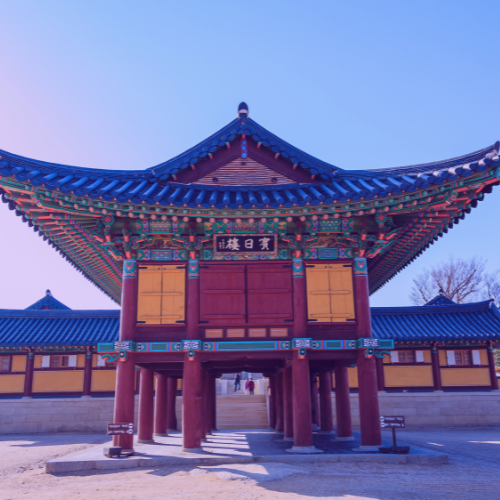Interesting Things To Know About Religion in South Korea
- byT.Sapphire 💙
- 1 year ago
- 0 Comments
- 4mins

In 1819, President Thompson Jefferson, who became the third US president, quoted that “Constitutional religious freedom is the most inalienable and sacred of all human rights.” And this seems to be an irrefutable fact over the years in many parts of the world, including South Korea.
South Korea, also known as the Republic of Korea, contributes 0.66% of the total world population, with an estimated population of about 51.7 million in 2023. However, it should be noted that the Asian continent includes religious countries like India, the Philippines, China, etc. Unlike these regions with high religious acceptance, the religious rate in South Korea is below average.
The last reliable religion census in South Korea was conducted in 2015, and about 56.10% were identified as having no religion, 28.6% as Christian, 15.50% as Buddhist, and 0.80% of the remaining population were identified with other religions like Islam, Cheondoism and more. Even with the rolling of days into years and an increase in population, this estimation has remained almost the same to date.
Here is a peek into the histories and reasons for each religion and religious belief respectively in South Korea.
Irreligion/ Atheism
Just like religion is the belief in a God or gods, irreligion is not believing in any god. 56.10% of the South Korean population accounted for irreligion and atheism in 2015. This is a result of their busy schedules, lack of trust in religious organizations, and atheism. About 15% of the population are convinced atheists while the rest of the irreligious groups are either not interested because of the mentioned reasons or other reasons.
Buddhism
Rather than an introduced religion, Buddhism can be considered a part of the Korean foundation. It was found among 15.50% of the South Korean population in 2015. Buddhism was introduced to the Korean peninsula in the 4th century during the Three Kingdoms period through China after it originated from India. Even after the end of colonial rule, some South Koreans have continued the Buddhist practice to date, but it had a rapid decline in the modern day and with the acceptance of Christianity.
Christianity
The South Korean Christian body is divided into two which are Protestantism and Catholicism which accounted for 19.70% and 7.90% of the 2015 religion population census, respectively.
Though Christianity (Catholicism) was initially introduced during the Joseon Dynasty in 1758 by Korean diplomats, it was persecuted, and seen as an evil practice and it was eradicated. Catholicism was introduced again in 1785, however, it was not long before the persecution started again in 1866 and thousands of the early Korean Christians were killed.
The protestant church was later established in 1883, which saw the gradual acceptance of Christianity in Korea. However, Protestantism and Catholicism official acceptance only began in South Korea after the Second World War freed Korea from Japanese colonial rule.
Other Religions
As established, the other 0.80% of the Korean population were identified with other religions which included Cheondoism (Confucianism religion), Islam, Jeungsanism, Shamanism, Daesun jinrihoe, and other locally oriented religions. These religions were mostly found among immigrants but a few of the locals are identified with this religion, especially Islam.
South Korea is a country where different religions coexist peacefully without bias, religious conflicts, intolerance, and discrimination. The advantages of religious liberty in South Korea cannot be overemphasized because of its leniency to strangers.
Regardless of your religion or religious beliefs, you can rest assured that your trip to South Korea will be welcoming and peaceful.
T.Sapphire 💙
T. sapphire is a writer who found her love for the Hallyu wave after watching the historical drama “Jumong.” She is mainly interested in Korean dramas and the history of Korea at large. Explore her pieces as she takes you on a journey through K-Drama recommendations and keeps you informed about the history of the Korean people.
0 Comment(s)
Related Posts
Daily Newsletter
Get all the top stories from Blogs to keep track.





Leave a comment